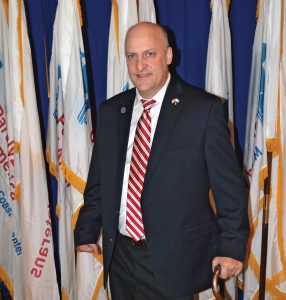Getting out and about during a pandemic
By David Zurfluh
July is upon us, and cooped up people are ready to bust out of their lockdown situations and re-enter their former lives before the novel coronavirus (COVID-19) pandemic.
While healthy, young people seem to be growing less fearful and worried about the virus, the opposite is true about the spinal-cord injury and disease (SCI/D) population until a vaccine becomes available. We will need to be aware of the risks and dangers of COVID-19 and adjust on the fly, as our local areas and the world slowly or rapidly open more.
Remember, our SCI/D population will not mirror the general population as it opens again. Our compromised lungs and other health issues will cause our population’s opening to lag behind, quite possibly until we can get vaccinated.
Think of people with asthma who are warned to stay indoors on a high-pollution day. Our population may have to do the same as COVID-19 flares up and the need for personal protective equipment (PPE) such as face masks, gloves and alcohol wipes carries on for the foreseeable future.
There’s one area during the last several months of this pandemic that gives me concern for SCI/D veterans — the hyperfocus on the virus and the slow reopening of outpatient and elective care within Department of Veterans Affairs (VA) hospitals.
I fear health screenings for cancer, heart disease and other serious health issues that would have been caught during annual exams or other outpatient visits may have been overlooked during this shutdown. Pressure sores and infections may have worsened, too, and there may be some confusion about what to do.
I can’t stress enough that if you have a serious health issue, don’t wait for the VA to reopen. Be your best advocate and demand to be seen somewhere, if not at a VA medical center. Make that call to your health care provider. Be adamant about your needs and work with your Paralyzed Veterans of America national service officer. Again, be your own best advocate for your health care needs in these uncertain times.
If you don’t have a plan for COVID-19, I suggest you make one now in case you, a family member or caregiver contracts the virus or even another illness. Make sure all involved understand what to do in that event. If you rely on caregivers, make sure a backup plan is in the works and understood by all involved.
Make sure you have enough PPE for everyone involved in your life and care. A vaccine is on the horizon, but we must remain vigilant until it becomes available to us.
I will end with three things I tell members, staff and the public when talking in webinars, meetings or to groups during this COVID-19 pandemic we are all in:
1) Think safety first
2) Know your surroundings
3) Make smart and safe decisions



